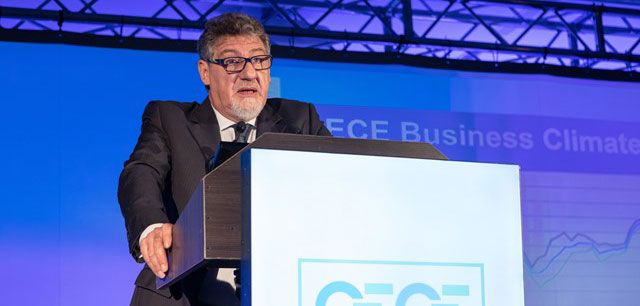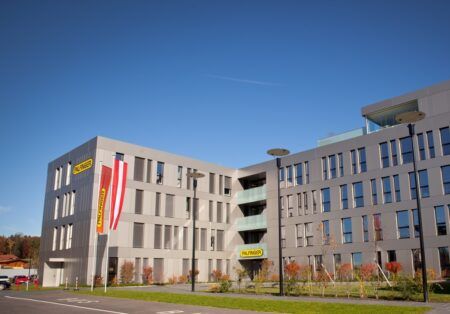The Committee for European Construction Equipment (CECE) has declared its optimism in overcoming the future challenges facing the industry at its biennial conference this week.
Senior construction industry figures from across Europe converged in Rome, Italy, for the association’s Congress amid a positive economic environment for the sector.
After booming with a 15% increase in 2017, sales of construction equipment in 2018 continue to grow all over Europe and are on track for an estimated 5-10% increase at the end of the year.
It means that for the second successive time, the CECE event took place in a positive economic environment for an industry comprising approximately 1,200 companies and 300,000 staff, and generating revenues of €40bn (US$46bn) per year.
This positive environment allowed delegates at the Congress to discuss with optimism the challenges coming from the global political environment, the technology drivers impacting construction and the regulatory developments from the EU level.
A digital future
In terms of technology, the main driver for industry transformation is digitization, and the result of an eight-month project studying the digital transformation of the construction industry was presented for the first time at the Congress.
CECE president Enrico Prandini said, “This study is another step of CECE’s investment into digitizing our industry. In the last eight months, a specialized team of consultants, supported by a small group including contractors and rental companies, have analyzed how to facilitate the uptake of digital construction machinery in order to reap the benefits of data on productivity, safety and sustainability, our three major challenges.
“If there is one key takeaway from this project, in my opinion, [it] is the need to change the business models to unlock the value creation of data.”
With EU regulatory development coming to a slowdown and Brussels preparing for the deep institutional changeover of 2019, the Congress was also the occasion to officially endorse the CECE Manifesto for the European Parliament elections.
CECE is calling on the EU to equip itself with a long-term vision and a strategy for a proper Industrial Policy. European industry continues to be innovative and is transforming itself thanks to digital technologies, but global tensions and fierce competition, in the long run, risk limiting the competitiveness of EU manufacturing.






